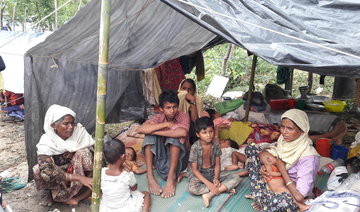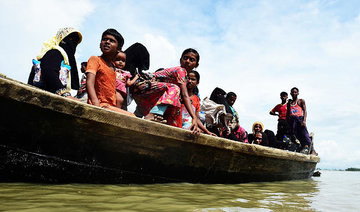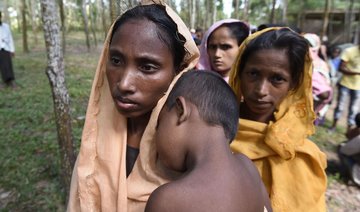DHAKA: Bangladesh has accused Myanmar of repeatedly violating its air space and warned that any more “provocative acts” could have “unwarranted consequences”, raising the risk of a deterioration in relations already strained by the Rohingya refugee crisis.
Nearly 400,000 Rohingya Muslims from western Myanmar have crossed into Bangladesh since August 25, fleeing a Myanmar government offensive against insurgents that the UN has branded a “textbook example of ethnic cleansing”.
Bangladesh said Myanmar drones and helicopters had violated its air space three times – on September 10, 12 and 14 – and it had called in a top Myanmar embassy official in Dhaka to complain.
“Bangladesh expressed deep concern at the repetition of such acts of provocation and demanded that Myanmar takes immediate measures to ensure that such violation of sovereignty does not occur again,” the ministry said in statement late on Friday.
“These provocative acts may lead to unwarranted consequences.”
A Myanmar government spokesman said he did not have information about the incidents Bangladesh had complained about but Myanmar had denied an earlier accusation.
The spokesman, Zaw Htay, said Myanmar would check any information that Bangladesh provided.
“At this time, our two countries are facing the refugee crisis. We need to collaborate with good understanding,” Zaw Htay told Reuters on Saturday.
Bangladesh has for decades faced influxes of Rohingya fleeing persecution in Buddhist-majority Myanmar, where the Rohingya are regarded as illegal migrants and denied citizenship.
Bangladesh was already home to 400,000 Rohingya before the latest crisis erupted on Aug. 25, when Rohingya insurgents attacked about 30 police posts and an army camp, killing a dozen people.
The Myanmar security forces responded with what rights monitors and fleeing Rohingya say is a campaign of violence and arson aimed at driving out the Muslim population.
The conflict has led to a humanitarian crisis on both sides of the border and raised questions about Myanmar’s path under the leadership of Nobel laureate Aung San Suu Kyi after nearly 50 years of strict military rule.
The generals still control national security policy but nevertheless, Suu Kyi has been widely criticized abroad for not stopping or condemning the violence.
There is little sympathy for the Rohingya in a country where the end of military rule has unleashed old animosities and the military campaign in Rakhine State is widely supported.
UN Secretary-General Antonio Guterres and the UN Security Council have urged Myanmar to end the violence, which he said was best described as ethnic cleansing.
Myanmar rejects the accusations, saying its security forces are carrying out clearance operations to defend against the insurgents of the Arakan Rohingya Salvation Army, which claimed responsibility for the August 25 attacks and similar, though smaller, attacks in October.
Bangladesh warns Myanmar over border amid Rohingya crisis
Bangladesh warns Myanmar over border amid Rohingya crisis














